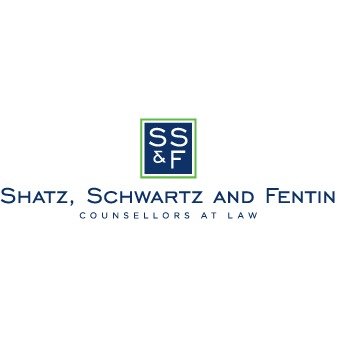Best Commercial Real Estate Lawyers in Northampton
Share your needs with us, get contacted by law firms.
Free. Takes 2 min.
Free Guide to Hiring a Real Estate Lawyer
List of the best lawyers in Northampton, United States
About Commercial Real Estate Law in Northampton, United States
Commercial real estate law involves the sale, purchase, leasing, and management of property utilized for business purposes within the area of Northampton, United States. It covers aspects like drafting of leases, sale contracts, and tenant disputes. Just like other areas of law, commercial real estate law in Northampton is subject to federal statutes as well as local and state laws and regulations. It’s a complex field hence, understanding the nuances fully can be challenging for non-lawyers.
Why You May Need a Lawyer
Legal assistance in commercial real estate is essential in numerous scenarios including but not limited to reviewing, negotiating and drafting contracts, lease agreements, and documents for property transactions. Lawyers can assist in ensuring compliance with zoning laws, land use regulations, and other local laws. They are also instrumental when dealing with any disputes regarding a property, such as tenant disputes or breach of contract. Moreover, during purchase or sale of commercial properties, legal expertise is necessary for due diligence, title search, and to avoid any potential liabilities or fraud.
Local Laws Overview
In Northampton, local laws regarding commercial real estate govern areas such as zoning, land use, environmental issues, property taxes, easements, etc. One unique aspect is historical preservation as certain buildings and areas in Northampton fall under historical preservation statutes which limit modifications. Such laws can greatly affect the potential uses and renovations one can do to commercial properties. Always ensure to consult an expert to help navigate through these laws and regulations when dealing with commercial real estate.
Frequently Asked Questions
What is the period to lease a commercial property?
While the length of a lease is negotiable, commercial leases commonly range from two to 10 years, with options to renew. Be sure to consult with a lawyer to understand all terms and conditions.
What are some common disputes in commercial real estate?
Common disputes include those related to leases, ownership, property boundaries, zoning and land use, among others.
Can a lawyer assist me if I receive a zoning violation notice?
Yes, a commercial real estate lawyer can help to either dispute the zoning violation or find a solution to rectify it.
What is due diligence in commercial real estate transactions?
Due diligence involves a detailed investigation of the property in question to identify potential issues like liens, easements, environmental concerns, zoning issues, and more before the property is purchased.
A tenant has defaulted on rent, what can I do?
If a tenant defaults on their rent, a lawyer can provide advice on eviction procedures, rent collection, or renegotiating leasing terms.
Additional Resources
The City of Northampton’s Planning and Sustainability Department is a valuable resource for zoning and land use information. The Hampden County Registry of Deeds can provide information about particular properties, including deeds and titles. Northampton's Chamber of Commerce might provide useful insights into the local business environment.
Next Steps
If you require legal assistance in commercial real estate in Northampton, start by identifying your requirements and questions. Seek recommendations or conduct an online search for reputable commercial real estate lawyers in the area. Schedule a consultation with a lawyer who specializes in the specific area of commercial real estate law that pertains to your needs, e.g., real estate transactions, landlord-tenant law, etc. Before meeting, prepare a list of relevant questions and bring any essential documents related to the issue at hand.
Lawzana helps you find the best lawyers and law firms in Northampton through a curated and pre-screened list of qualified legal professionals. Our platform offers rankings and detailed profiles of attorneys and law firms, allowing you to compare based on practice areas, including Commercial Real Estate, experience, and client feedback.
Each profile includes a description of the firm's areas of practice, client reviews, team members and partners, year of establishment, spoken languages, office locations, contact information, social media presence, and any published articles or resources. Most firms on our platform speak English and are experienced in both local and international legal matters.
Get a quote from top-rated law firms in Northampton, United States — quickly, securely, and without unnecessary hassle.
Disclaimer:
The information provided on this page is for general informational purposes only and does not constitute legal advice. While we strive to ensure the accuracy and relevance of the content, legal information may change over time, and interpretations of the law can vary. You should always consult with a qualified legal professional for advice specific to your situation.
We disclaim all liability for actions taken or not taken based on the content of this page. If you believe any information is incorrect or outdated, please contact us, and we will review and update it where appropriate.








